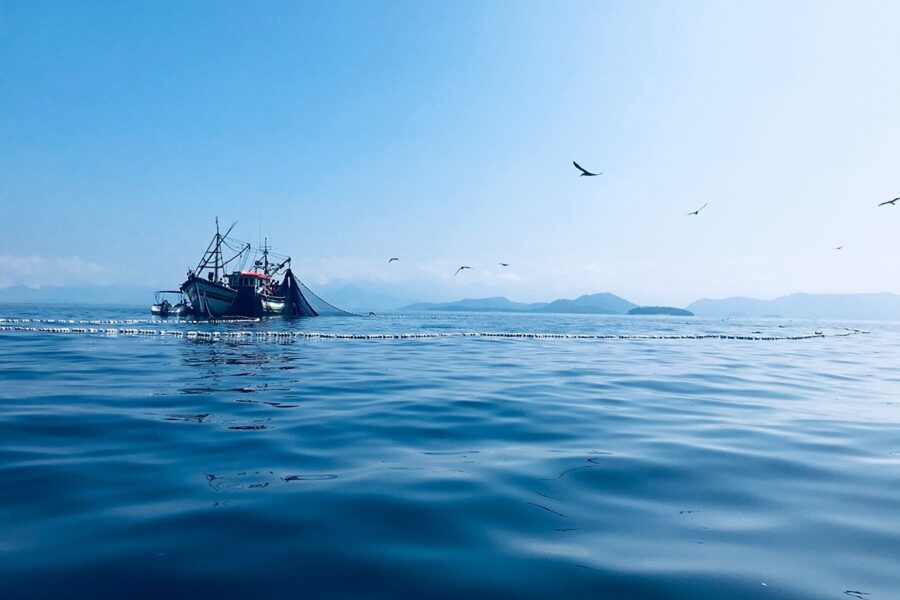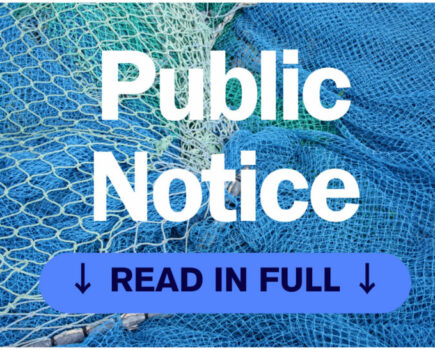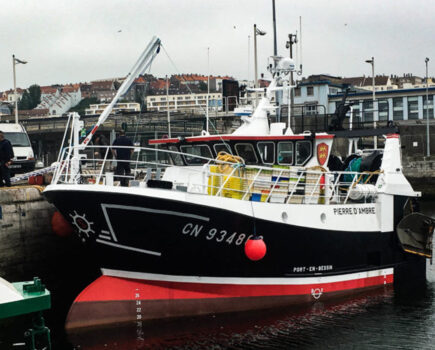Restrictions on fishing in MPAs, particularly bottom trawling, need to be introduced as soon as possible, MPs were told last week.
Introducing a debate on MPAs, Conservative MP Chris Grayling said he had previously brought forward a private member’s bill, the Marine Protected Areas (Bottom Trawling) Bill, to ban bottom trawling in MPAs.
Since then, the government had taken ‘the first steps in the right direction by banning bottom trawling in areas that are particularly important’, but ‘while the intent is good, progress is not yet rapid enough and planned measures not extensive enough to provide adequate protection to key species around our shoreline’.
The measures must not be taken at the expense of the fishing industry, he said, but what had to stop was ‘the situation where large, industrial-scale boats are able to scalp our seabeds, towing huge mechanisms behind them to hoover up marine life, without regard to what gets trapped in their nets’.
“I want all our MPAs to have the same protections that have been introduced to the Dogger Bank,” he said, “and that is a good start, but every day of needless destruction in other MPAs causes more damage to our ecosystems, which will take years and years to restore.”
He claimed: “If we destroy the seabed and the habitat of the creatures that live on it, we also deeply damage the food chain for the fish who live there. To my mind, there is a benefit to the fishing industry in sorting out adequate, proper and appropriate protections for marine life.”
He asked the minister ‘to drive forward with bans on damaging fishing practices in MPAs’. “There really is no reason why that cannot be done in the current parliament,” he said.
Saying that he also wanted to see Highly Protected Marine Areas (HPMAs) introduced, Chris Grayling acknowledged that ‘we cannot just close the fishing industry off from large areas of the waters that it has fished for centuries’. “However, it is also in the interests of the industry that there are patches where we provide complete protection,” he claimed.
Replying to the debate, Defra minister Trudy Harrison said that the government’s environmental improvement plan describes how fisheries byelaws in the first four offshore MPAs came into force last year, providing protection from bottom-towed fishing gear.
“The MMO is working speedily, has consulted this year on protections for a further 13 MPAs, and is now analysing responses to that consultation,” she said.
“We aim to have all necessary byelaws in place in our MPAs to protect them from damaging fishing activity by the end of 2024.”
This meant the government would be able to meet its interim statutory target of 48% of designated features in MPAs being in a favourable condition, with the remainder in a recovering condition, by 2028, she said.
“We have announced that we will be designating the first three pilot HPMAs by 6 July, and will explore additional sites later this year.
“For HPMAs to be successful, we will need to work hand in hand with the fishing industry, other marine industries and sea users in designating, managing and monitoring them.
“We recognise that there are growing spatial tensions between industries such as fishing, the renewable energy sector, dredging, and the oil and gas industry, alongside the need to conserve and enhance our marine environment.”
On bottom trawling, the minister pointed out that approximately 30% of the tonnage and 45% of the value of fish landed by UK vessels in 2021 came from bottom trawling.
“Bottom trawling and other fishing methods will be stopped only where they are having a negative impact on the habitats or species protected by each MPA,” she said. “A blanket ban on bottom trawling in all MPAs, which some are calling for, has the appeal of simplicity, but in some cases would involve unnecessary restrictions.”
Chris Grayling said that the purpose of the debate was to give Defra ‘a hefty nudge’. “I know that officials like to take their time to go through the responses and work thoroughly to prepare the strategies, but we do need to get on with this,” he said.
“We need a bit of a foot on the accelerator, as we cannot afford to wait longer for the measures that need to be taken.
“Both politically and naturally – in conservation terms – time is not on our side.”
‘Salami slicing is damaging coastal communities’
Orkney and Shetland MP Alistair Carmichael highlighted the importance of bringing coastal and island communities onboard with changes to marine management.
Speaking in the debate on MPAs, he suggested that Chris Grayling ‘might want to look northwards to see the experience with Scottish government in their consultation on HPMAs’.
He told the MP: “There is a great deal of advantage in ‘hastening slowly’ here. You really have to bring fishing coastal and island communities with you, otherwise it is ultimately counterproductive to the interests of fish conservation.
“There will be more support in coastal and island communities if you can demonstrate the benefit in a small number of areas first.”
Chris Grayling said he ‘absolutely’ took Alistair Carmichael’s point that the process should be done in stages and in partnership with communities.
“In areas where there are HPMAs, they are seeing the benefit. I’m not in favour of just barging in and closing areas tomorrow. Let’s work with communities, but let us not approach this on the basis that there should be no more MPAs and HPMAs, because I think you can make this work for both sides.”
Alistair Carmichael pointed out that ‘fishermen find themselves excluded for other reasons as well, because of aquaculture, because of cables, because of offshore renewables, so it is a ‘salami slicing’ effect’. “If we are to be effective in creating MPAs and HPMAs we have to look at it in the round, and not just at HPMAs in isolation.”
Speaking after the debate, Mr Carmichael added: “The debate today may have focused on MPAs in England, but it appears that the same problems we have seen in Scotland are developing.
“MPAs and HPMAs are in principle laudable goals and can be a positive part of how we manage the seas around us, but they have to be developed in partnership with all who have a stake in marine management. It is that meaningful consultation and co-operation that has been severely lacking to date in both England and Scotland.
“We have to hope that renewed consultation plans in Scotland can be the start of a better approach. Fishermen, energy interests and conservation can all be brought together in a common plan. It cannot, however, be under the assumption that the needs of islanders and fishing communities are secondary to all others.”
This story was taken from the latest issue of Fishing News. For more up-to-date and in-depth reports on the UK and Irish commercial fishing sector, subscribe to Fishing News here or buy the latest single issue for just £3.30 here.
Sign up to Fishing News’ FREE e-newsletter here.








